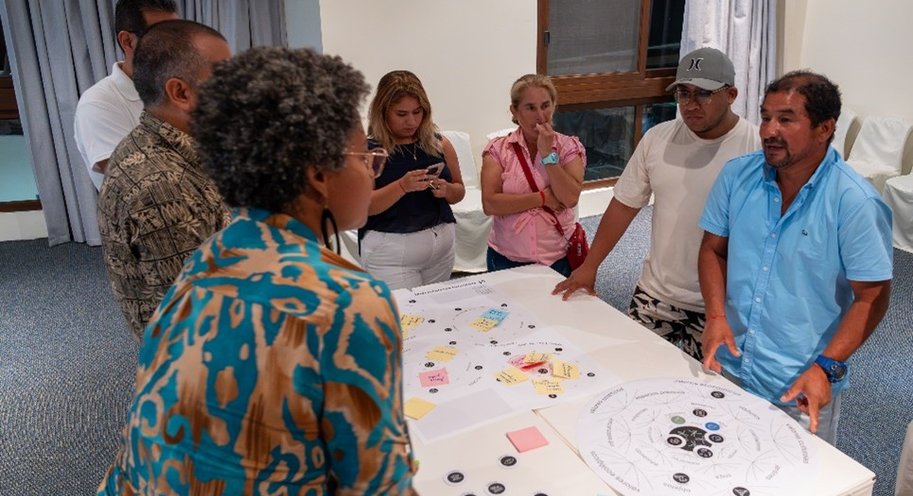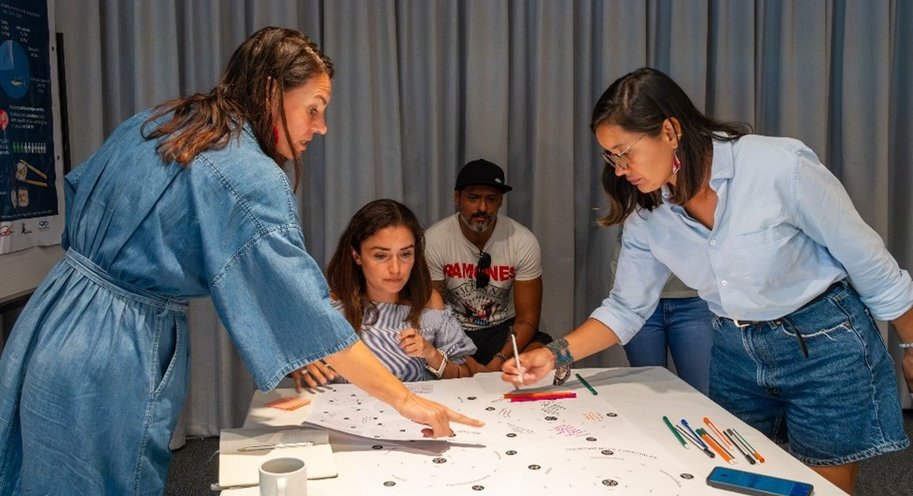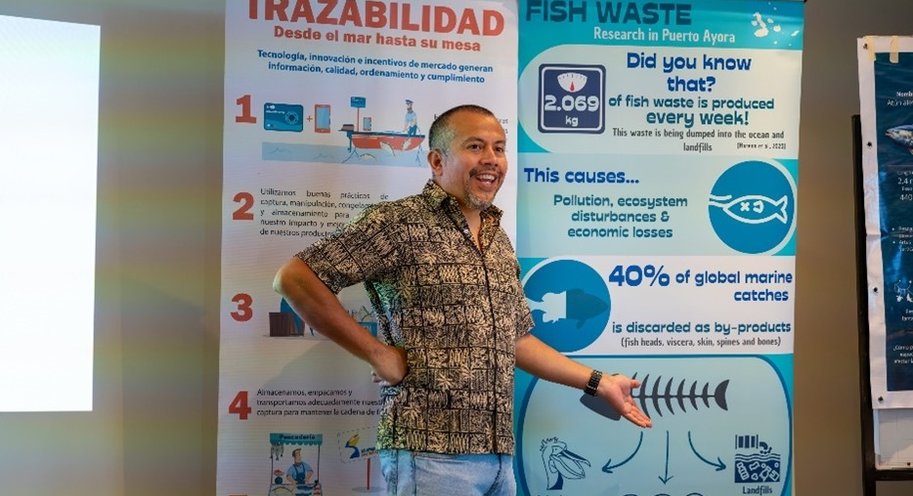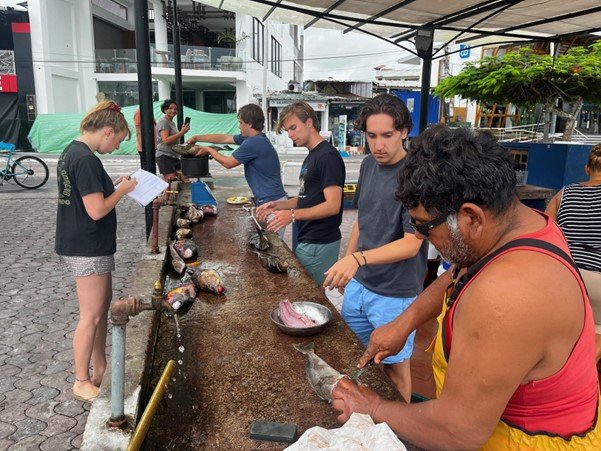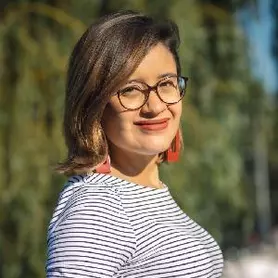Empowering Circular Communities on the Galápagos Islands, Ecuador
Galápagos, Ecuador, February, 2024 - The project “Leveraging Empowered Circular Communities in the Galápagos Islands, Ecuador: A Promising Pathway to Sustainable Development and Conservation” aimed at transforming fish waste into business opportunities has successfully commenced in the Galápagos Islands, as part of a broader initiative encouraging the creation of "Circular Communities", says Fátima Delgado of TU Delft, who is involved in the project. The project aims to find solutions to various environmental and anthropogenic challenges that threaten The Galápagos seafood system.
A consortium, in which the Delft Centre of Entrepreneurship of TU Delft participates, is developing a research project with the central aim to of enhacing the sustainability of the Santa Cruz Island seafood system through initiatives promoting a circular economy.
A circular community maximizes resource efficiency, reduces waste, and promotes sustainability. In a circular community, the life cycle of products is extended through regenerative practices, reuse, repair, renovation, and recycling. The goal is to create a closed system where materials and resources remain in use for as long as possible, extracting maximum value from them while in use, and then recovering and regenerating products and materials at the end of each service life cycle.
Gathering information
Within the framework of this project, workshops, interviews, and information gathering on fish waste in Santa Cruz Island were conducted. The workshops, held on January 27 and February 3, 2024, involved 25 participants from various sectors, including the Pelican Bay Fishing Cooperative, restaurant owners, chefs, and representatives from the Government Council of the Galápagos Special Regime, the Ministry of Production, and the Autonomous Government of Santa Cruz Island.
The workshops used the Circular Value Flower method, developed by Dutch experts to create circular communities through practical and sustainable strategies’, says Fátima Delgado. This method helps communities work together to close resource loops (like materials, energy, water, and nutrients) and shows the benefits (social, ecological, aesthetic, cultural, and economic) of a circular approach. It's been successful in the Netherlands, Africa, India, and Indonesia, leading to lower environmental impact and new job opportunities. Dr. Els Leclercq, the method's creator, aims to foster Circular Communities that collectively manage product life cycles at a local level. Involved in the workshop were Pelicano Bay Fishing Cooperative fishermen from Santa Cruz Island.
Additionally, fishers, restaurant owners, farmers, municipal authorities, and representatives from governmental and non-governmental institutions were interviewed. Delgado added, "The interviews aimed to understand the actions, roles, and responsibilities of various key actors within the fish waste production in Puerto Ayora, Galápagos."
The results of these workshops will be used to promote circular economy initiatives that contribute to improving the Santa Cruz Island seafood system, generating economic and environmental benefits in the medium and long term.
Challenges of the Seafood System
The Galápagos seafood system faces various environmental and anthropogenic challenges that jeopardize the food security, economy, nutrition, and health of the archipelago's inhabitants. If not managed properly, fish waste can contaminate water and soil, facilitate the proliferation of invasive species, or disrupt local fauna. Additionally, the decomposition of organic matter can produce unpleasant odours and harmful gasses, affecting the quality of life and well-being of local communities, as well as the tourism potential of the archipelago. Finally, fish waste remains a lost economic opportunity to reuse all the raw materials that fish offer, which can be transformed into value-added products such as dietary supplements, leather goods, fertilizer, and organic plastic, among others, creating new income and employment sources for coastal communities.
"Circular economy represents a solution to mitigate the environmental impacts generated by fish waste and other wasted organic matter (waste from cows and pigs) by transforming them into marketable products. This would create economic incentives to implement a more efficient and responsible environmental management system, contributing to creating a circular community that is resilient and self-sufficient," stated researcher Mauricio Castrejón, UDLA representative in the Galápagos.
Dra. Angela Díaz, innovation specialist at UDLA, adds: "The circular economy project executed by Pelicano Bay Cooperative with technical and scientific assistance from UDLA and TUDelft represents progress towards finding practical and sustainable solutions to the challenges faced by the Galápagos Islands seafood system. Collaboration between fishermen, academia, chefs, and entrepreneurs is essential to ensure the success and sustainability of such innovative initiatives,"
Project Consortium
The following organisations participate in the consortium: The University of the Americas of Ecuador (UDLA), the Delft Centre of Entrepreneurship (DCE) of the Delft University of Technology (TUDelft), the Circular Community Foundation, The Institute for Housing and Urban Development Studies (IHS) of Erasmus University Rotterdam, The Institute of Biology of Leiden University, and the Pelican Bay Fishing Cooperative of Galápagos Islands.
Project Funding
This project is funded by the LDE Global. Leiden-Delft-Erasmus Universities support initiatives which aim at co-creation of research or other programmes between faculty members of the LDE-universitites and scholars and scientists from 'majority world countries' in Africa, South- and Southeast-Asia and Latin-America. Read more about LDE Global here
For more information, please contact:
Fátima Delgado
Sustainable & Circular Entrepreneurship - Specialist & Lecturer
Decolonizing Sustainability - Lecturer
TU Delft l Centre for Entrepreneurship
F.DelgadoMedina@tudelft.nl
